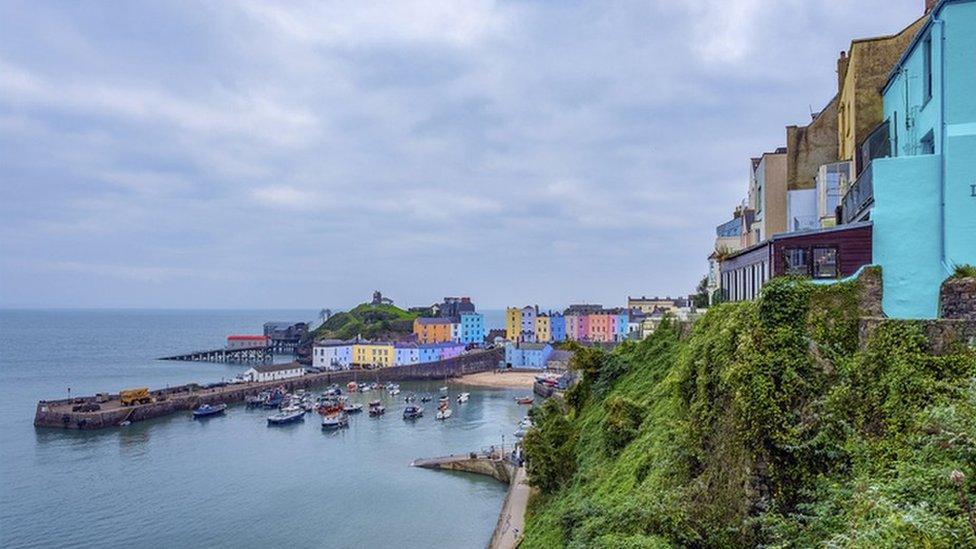Coronavirus: 'Extend furlough scheme to save Welsh tourism companies'
- Published

The pandemic has been catastrophic for Bike Park Wales, its director says
The furlough scheme must be extended beyond October to stop adventure tourism businesses "disappearing off the map" in Wales, a Conservative MP has said.
Former Welsh Secretary Stephen Crabb called for the UK government to provide "extra support" for the sector.
More than 9% of the workforce, external in Wales is now employed in tourism.
The Treasury said it had extended the scheme until October and would continue to "support businesses".
A million employers have used the UK government's Job Retention Scheme to furlough their workers, paying 80% of their wages up to £2,500 per month.
The Treasury extended the scheme until October, and have asked employers to start contributing to furloughed workers' wages from August.
But adventure firms in Wales have called for more support, saying their businesses will struggle to make a profit so long as social distancing is in place.
Martin Astley, the director of Bike Park Wales in Merthyr Tydfil, said the coronavirus lockdown had been "catastrophic" for the company.
"It's hit us at a very bad time as well - a lot of outdoor providers in Wales had a really hard winter, the weather was horrendous, Storm Dennis caused tens of thousands of damage on our site, we were still in midst of fixing that when lockdown came," he said.
Mr Astley said part of his operation saw customers taken to the top of a mountain in minibuses, which was "very difficult" to run with social distancing in place.
"Our businesses are completely un-financially viable under social distancing. We can't even come close to breaking even let alone turn a profit."
Mr Astley said the furlough scheme needed to become "more focused" to help businesses like his avoid redundancies.
"What concerns me is I'm fairly confident the furlough scheme will end before social distancing measures are no longer required, which puts us in a very difficult position - best case 50% down on our revenue and that only really leads in one direction unfortunately."
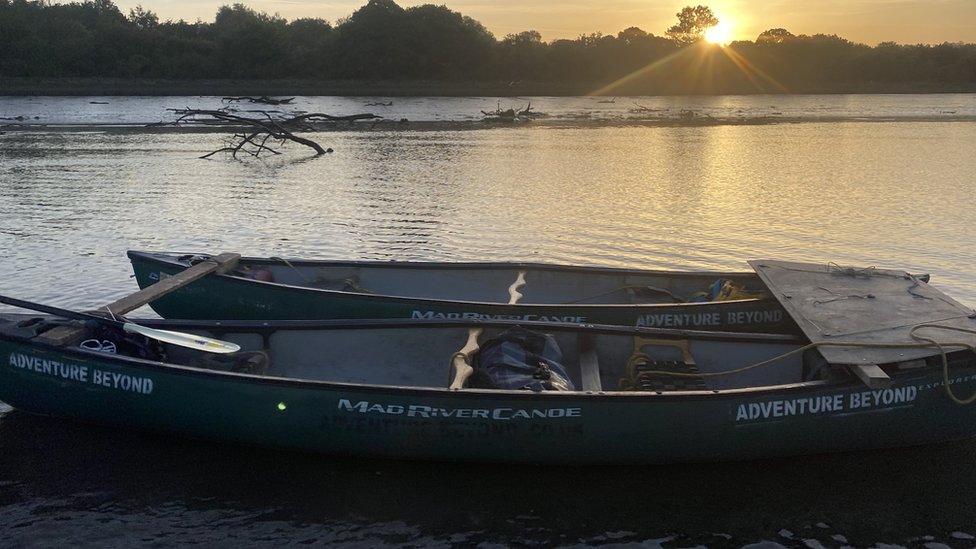
Jet Moore runs kayaking trips in west Wales, including on the River Teifi
Jet Moore runs an adventure tourism business called Adventure Beyond in west Wales.
It would usually be taking groups out kayaking or coasteering at this time of year.
He said the recent hot weather should have meant a "bumper season" for the industry - but that income has been lost.
"For the adventure tourism sector, it's like three winters in a row.
"We've had the winter, we've now got the summer with no work which is like a winter, and we're going straight back into a winter by the time it maybe gets going again."
He believes bespoke financial support packages are needed to help businesses survive through the winter, after the Job Retention Scheme ends.
"It's really hard but if they want the tourism industry to survive there's going to have to be something through the winter - but also allow people to continue working while getting that support.
"Because our winter time would be spent prepping for the season and we'd usually pay for that with our summer money."
Stephen Crabb, the Preseli Pembrokeshire MP, said such businesses in his constituency would face redundancies without more support.
"All are saying to me, realistically with social distancing in place, it becomes very difficult to run a viable operation with need for instructors.
"There is a need I think for an ongoing financial package for this sector and tourism across Wales generally.
"Tourism is probably the industry in Wales most economically impacted by coronavirus."
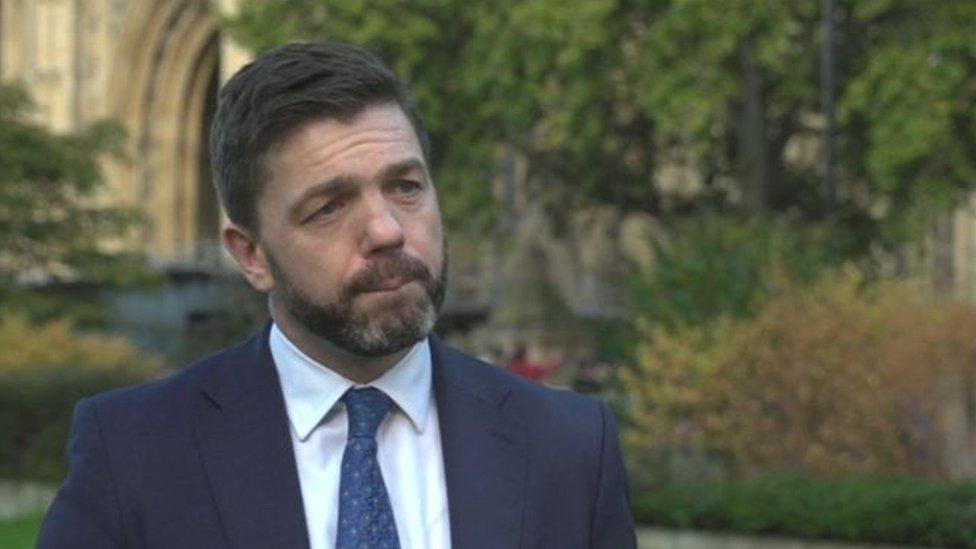
Stephen Crabb said he had spoken to firms that run dolphin boat tours, rock climbing trips and coasteering excursions
Mr Crabb is chair of the Welsh Affairs Committee in Parliament, which launched an inquiry in April into the impact of the coronavirus on the Welsh economy.
"My fear is unless the government provide some lifeline now and extend furlough scheme in a creative way then I think the inevitable will be many tourism businesses making their employees redundant and many of those businesses disappearing off the map of Wales altogether."
The Treasury said the retention scheme had "protected 8.7 million jobs across the UK".
"We have extended it until October - meaning it will have been open for eight months and will continue to support businesses as the economy reopens and people return to work," a spokesman added.
- Published29 May 2020
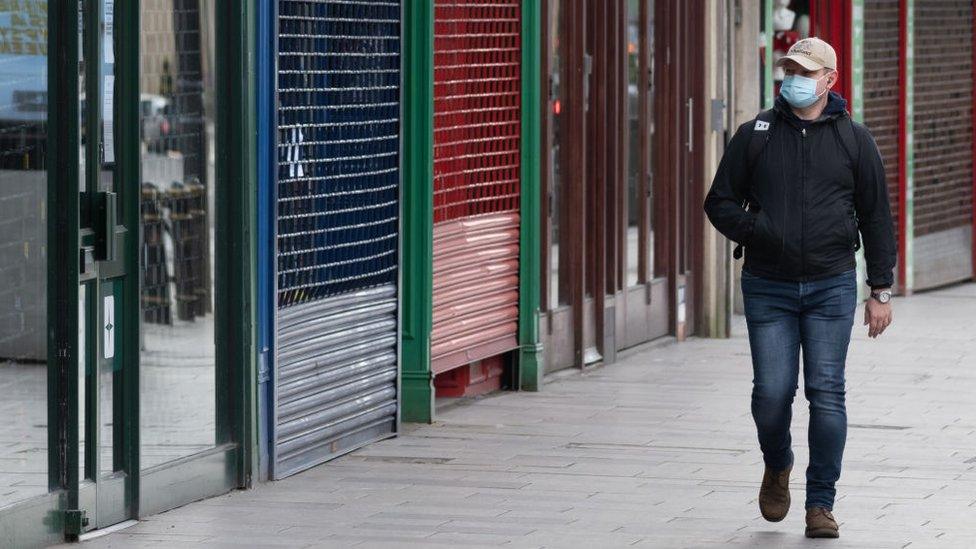
- Published17 May 2020
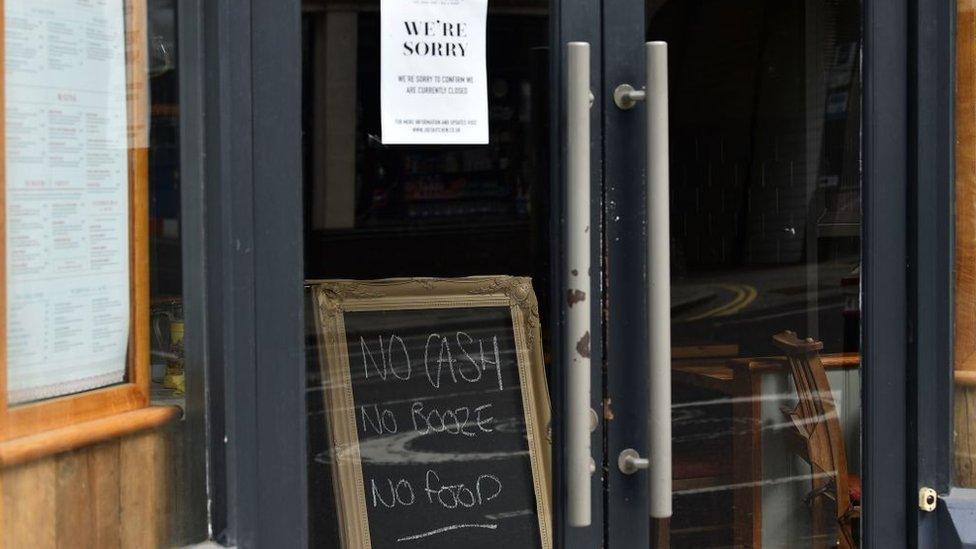
- Published24 May 2020
